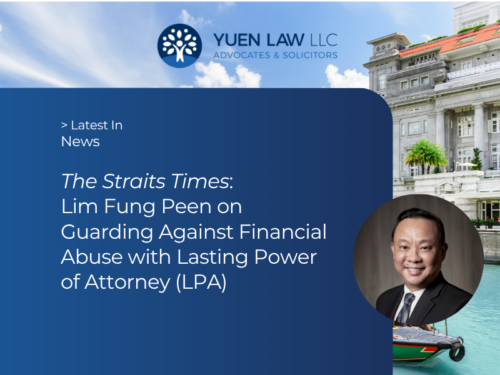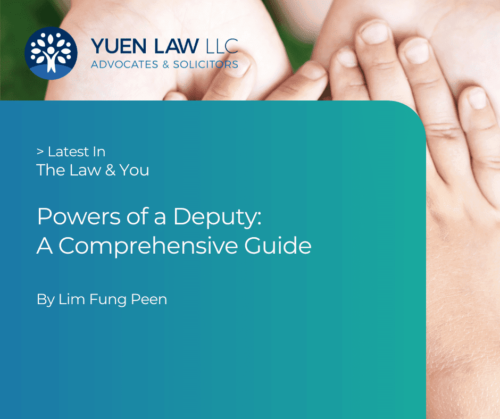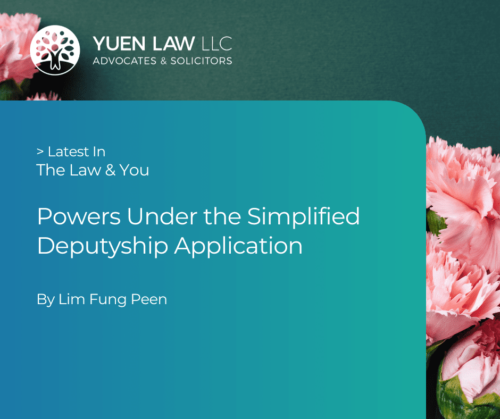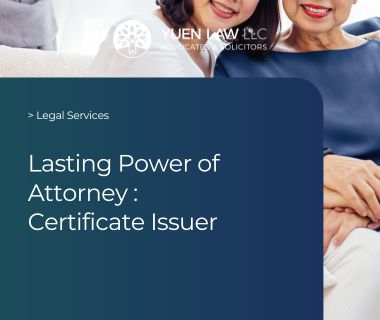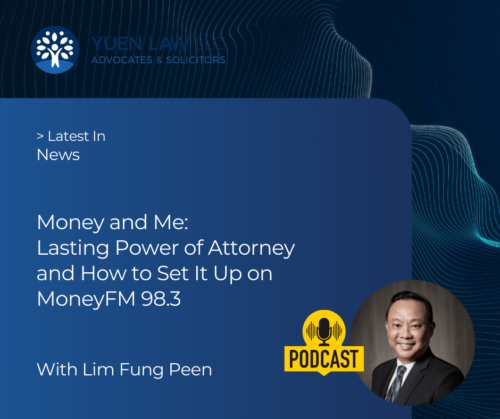If your donee abuses his or her powers, you may revoke the Lasting Power of Attorney (“LPA”) when you still have the mental capacity to do so. However, the danger lies in the possibility that during moments when mental capacity is lacking, you may not be aware of any abuse.
To discourage the abuse of power by a donee or deputy, and to punish those who do, the Mental Capacity Act (Chapter 177A) of Singapore (“Act”) criminalises the ill-treatment and wilful neglect of a person who lacks mental capacity. Any caregiver, donee or deputy found guilty of such an offence will be imprisoned or, fined or both.
What is Abuse?
- Physical abuse;
- Sexual abuse;
- Wilful or unreasonable act causing unnecessary physical pain, emotional injury, or injury to the health and/or development;
- Wilful or unreasonable neglect, abandonment, exposure to circumstances that are likely to endanger the patient’s safety; and
- Neglect where there is a failure to supply daily necessities such as food, clothing, medical aid, lodging, care or other necessities.
Signs of Abuse
- For physical abuse: slapping, hitting and other forms of violence;
- For sexual abuse: rape, sexual touching and procurement of sexual activities
- For emotional abuse – intimidation, refusing contact with other people and threats of harm, restraint or abandonment;
- For neglect – ignoring a person’s health or physical care needs, or withholding food, medication or water;
- For financial abuse – financial fraud, misuse of funds.
What Should You Do if You Think Someone is Being Abused?
Where abuse is suspected, the Act encourages the reporting of such suspected abuse. Individuals who suspect that a mentally incapacitated person is being abused can make a report to the Office of Public Guardian, Police or the Family Service Centre.
To encourage the report of suspected abuse, the Act provides whistle-blowing protection. Whistle-blowers will not be named in court proceedings and healthcare workers will not be in breach of their professional ethical codes for reporting suspected abuse when they do so in good faith.
Alleged Abuses or Misuse of Powers will be Investigated by the Public Guardian
The Public Guardian is supported by the Office of the Public Guardian. Where the Public Guardian finds that the deputy or donee has not behaved in the best interests of a mentally incapacitated person, the Public Guardian may apply to Court to revoke the power of that deputy or donee.
What Role Can You Play?
You may want to advise your loved ones about the risks of abuse and request that they look out for you for instances when they become vulnerable to abuse.
Resolving Disputes with Legal Professionals
If a family member finds themselves in disagreement with a decision made by a Donee or Deputy concerning property and affairs or the welfare of a person lacking mental capacity, it’s crucial to understand that this doesn’t automatically imply an abuse of power. In such circumstances, seeking a legal opinion can provide clarity and guidance. Additionally, if suitable, mediation can offer a constructive approach to resolving disputes among family members.
Can Deputyship Applications be Contested?
In cases where there is an abuse of powers a lawyer can help advise on revoking of an existing deputyship order or lasting power of attorney, and help another family member who is looking to apply be the new Deputy to manage the patient’s affairs.
For assistance on revoking a deputyship order or lasting power of attorney, please contact us to make an appointment.

